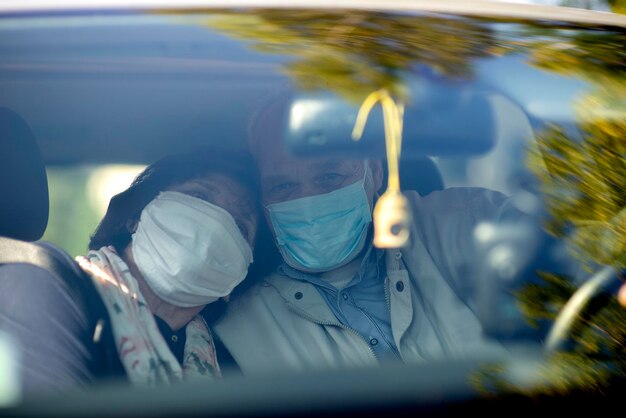Your Guide to How Soon Can I Drive After Cataract Operation
What You Get:
Free Guide
Free, helpful information about Cataract FAQ and related How Soon Can I Drive After Cataract Operation topics.
Helpful Information
Get clear and easy-to-understand details about How Soon Can I Drive After Cataract Operation topics and resources.
Personalized Offers
Answer a few optional questions to receive offers or information related to Cataract FAQ. The survey is optional and not required to access your free guide.
When Is It Safe to Get Back Behind the Wheel After Cataract Surgery?
Cataract surgery is one of the most common and successful operations performed today, helping millions see clearly again. While the prospect of improved vision is exciting, one very practical question often arises: How soon can I drive after cataract surgery? Navigating the post-operative phase while keeping safe is crucial, especially when it comes to returning to daily activities like driving. This guide delves into various aspects impacting your timeline for getting back on the road with confidence.
Understanding Cataract Surgery and Recovery
What Happens During Cataract Surgery?
Cataract surgery involves the removal of the cloudy lens of the eye, which is replaced with an artificial lens. Thanks to modern techniques, it’s usually a quick outpatient procedure with a typically seamless recovery. Understanding what the surgery involves helps set realistic expectations for recovery.
Recovery Timeline: What to Expect
The initial recovery from cataract surgery is surprisingly rapid for many. You might notice an improvement in your vision just a few hours after the procedure. However, the complete healing and adjustment can take several weeks. Here's a quick breakdown of the recovery milestones:
- First 24 Hours: Expect some blurriness as your eye starts to heal. Rest is essential during this period.
- First Week: Visual clarity improves progressively. Activities such as reading and watching TV become easier.
- After One Week: Most patients experience significant improvement in vision.
- One Month and Beyond: Full recovery is generally achieved, but slight adjustments in vision might occur.
Driving Post-Surgery: Key Considerations
Timeline for Resuming Driving
When is it generally safe to drive? While each person's recovery is unique, many resume driving within a week. It's essential to get clearance from your eye doctor during the post-operative check-up, typically scheduled within the first or second day after surgery. Factors influencing this timeline include:
- Visual clarity: Your vision should meet legal driving standards.
- Comfort: You shouldn’t experience pain, excessive glare, or halos.
- Alertness: Operating a vehicle requires full attention and no distractions from visual discomfort.
Factors Affecting Recovery
Your healing process and timing for driving again may vary depending on:
- Pre-existing eye conditions: Issues like glaucoma or macular degeneration might lengthen recovery.
- Overall health: Underlying systemic conditions, like diabetes, can impact healing rates.
- Type of lens implanted: Some lenses may require a brief adaptation period.
Tips for Safe Driving Post-Surgery
Once cleared by your doctor, keep these practical pointers in mind:
- Begin with Short Trips: Start with short, familiar routes to rebuild confidence.
- Avoid Night Driving Initially: Give your eyes time to adapt to potential light sensitivity.
- Wear Sunglasses: Protect eyes from glare and bright sunlight.
- Stay Updated on Medications: Make sure your vision isn’t blurred by any prescribed post-operative eye drops.
Additional Considerations for a Smooth Recovery
Eye Care and Maintenance
Proper eye care can facilitate a smoother healing process. Adhere to these tips for optimal recovery:
- Follow Doctor’s Instructions: Use prescribed eye drops as directed to prevent infection and inflammation.
- Avoid Strenuous Activity: Heavy lifting or rigorous exercise should be postponed initially.
- Protect Your Eyes: Utilize the eye shield or goggles during sleep to avoid accidental poking.
Knowing When to Call Your Doctor
While most surgeries conclude with excellent results, being aware of warning signs is crucial. Reach out to your healthcare provider if you experience:
- Sudden decrease in vision
- Persistent pain that over-the-counter medication can't relieve
- Unusual eye discharge
- Increased redness beyond expected levels
A Practical Summary: When and How to Drive Post-Cataract Surgery
Here's a handy guide to ensure you're proceeding wisely when considering driving again:
- ✅ Wait for Doctor’s Approval: Prioritize safety and get official clearance.
- ✅ Test Your Vision: Make sure you can see clearly and assess depth perception properly.
- 🚗 Start Slow: Kick off with short, daytime drives.
- 🌞 Use Sunglasses: Protect against glare and UV light.
- 🌜 Avoid Night Driving: At least until your vision has fully stabilized.
Conclusion: Empowering Your Post-Surgery Journey
Returning to driving after a cataract operation is a significant step in regaining independence and routine. By understanding your body’s signals and following medical guidance, you can confidently and safely return to the driver’s seat. Remember, the timeline for recovery varies among individuals, but by taking proactive steps, you facilitate a healthy healing process, ensuring your renewed vision is a benefit, not a burden. Trust in the process and communicate openly with your healthcare provider; with patience and care, the road ahead is clear.
What You Get:
Free Cataract FAQ Guide
Free, helpful information about How Soon Can I Drive After Cataract Operation and related resources.

Helpful Information
Get clear, easy-to-understand details about How Soon Can I Drive After Cataract Operation topics.

Optional Personalized Offers
Answer a few optional questions to see offers or information related to Cataract FAQ. Participation is not required to get your free guide.


